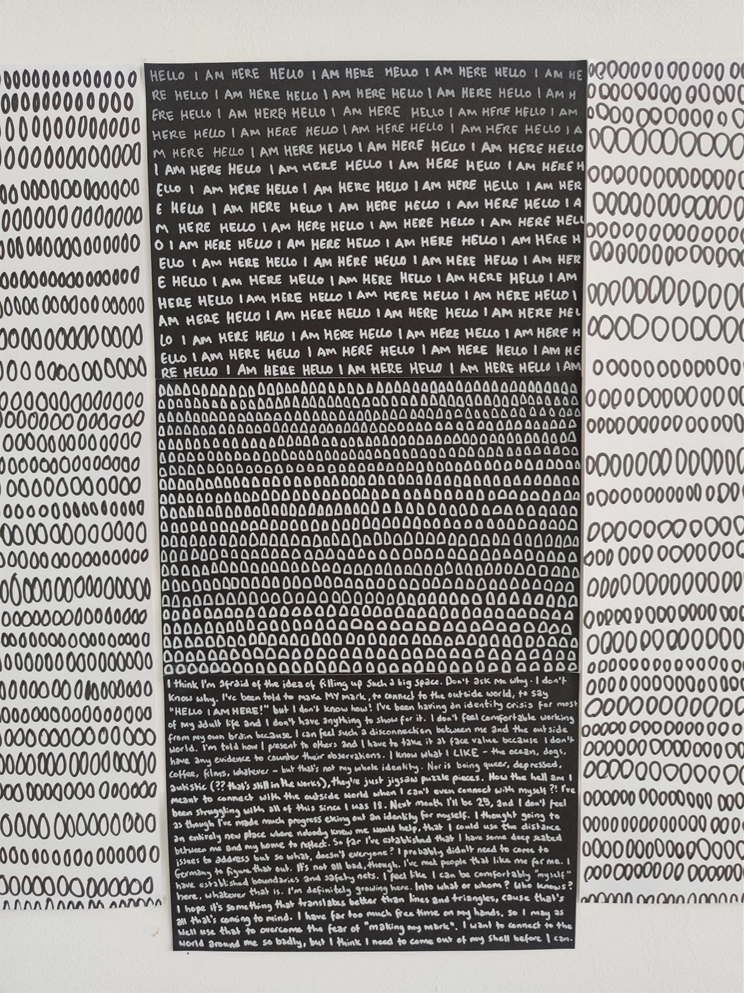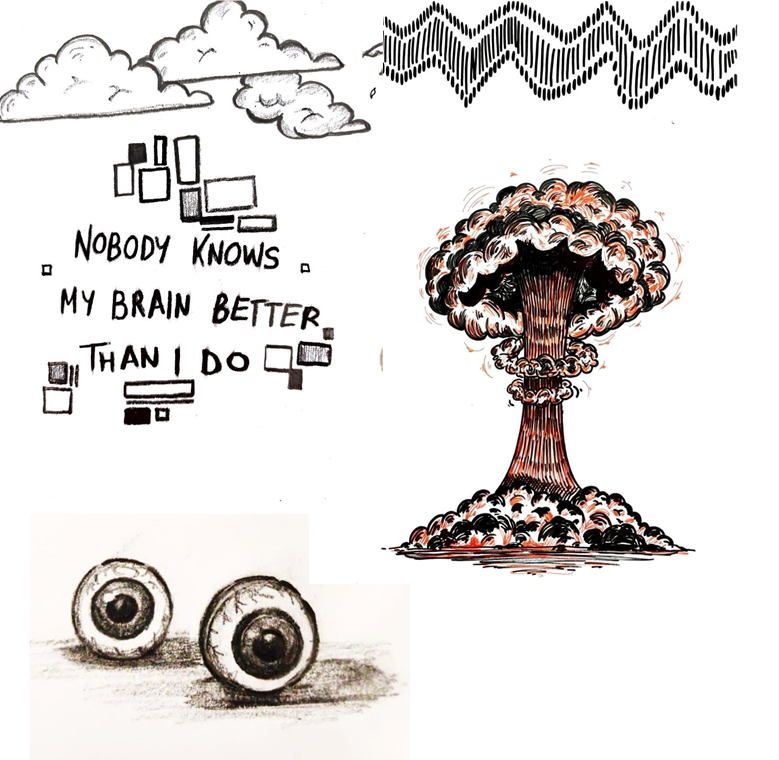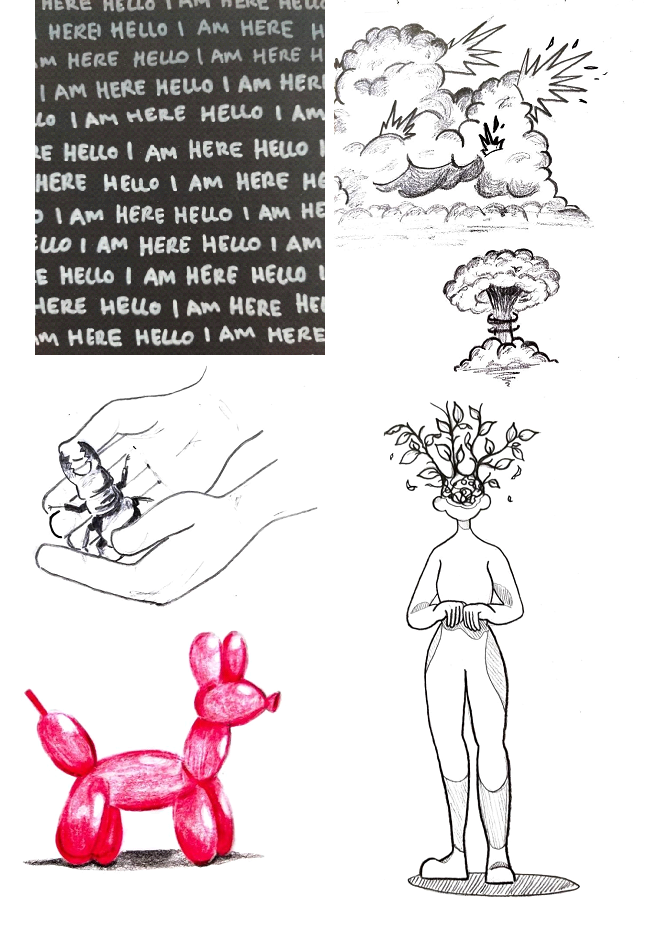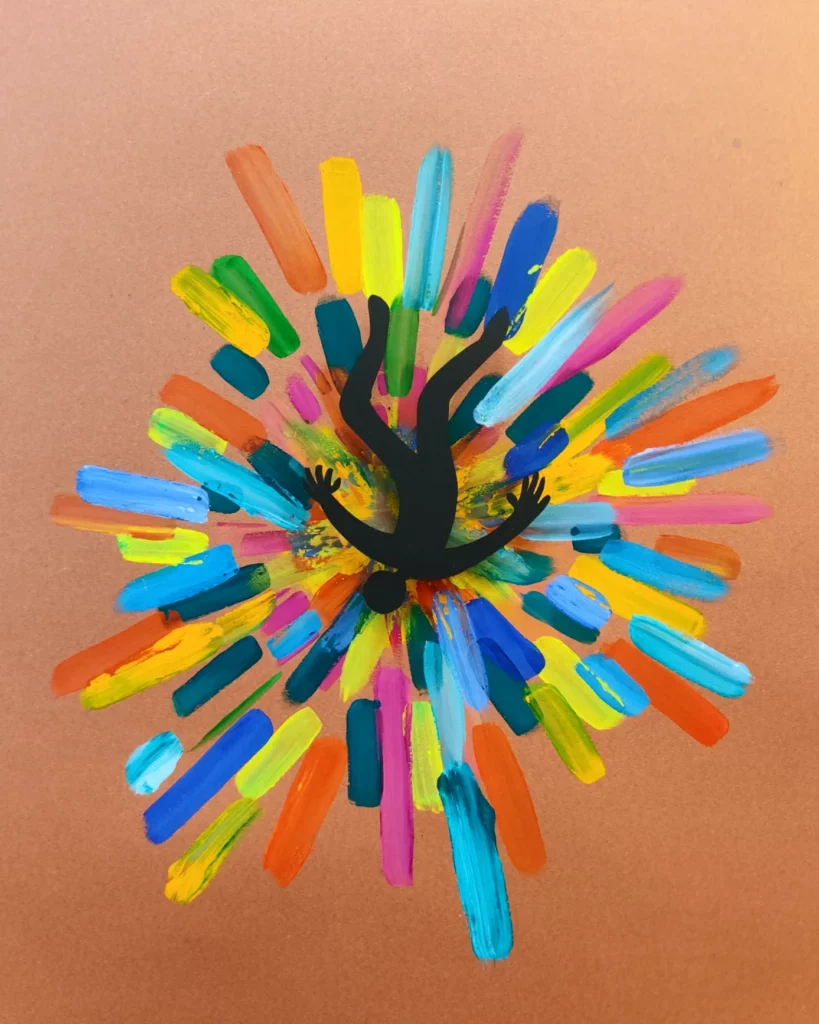“Even when you are made uncomfortable by a situation, you can still find it hard to get out of it. We learn from how hard it can be to do what you need to do to protect yourself. Who you are taught to be, how you are taught to be, polite, considerate, not troublesome, as a girl, as a student, is how you become more vulnerable, less willing or able to stop someone from pushing the line you need to protect yourself. When you know that to say no is to be judged as antisocial, it is hard to say no.”
(Ahmed, 2021, pg. 183)
“HELLO, I AM HERE: An Identity Crisis on Paper” is my ongoing art project, in which I am processing and establishing my place in the world. The title comes from my professor: during a meeting, in which we were discussing my work, he noted that I had been trying to make my art “illustrative” and putting too much focus on creating pieces that were aesthetically pleasing. In trying to make beautiful artwork, I was not making anything that was true to who I was as a person. He told me to try drawing and writing without putting too much forethought into it, to make my mark, to say, “Hello, I am here!”
Naturally, this challenge sent me into a tailspin. Where was I supposed to begin? How could I even start to project my inner self onto the world around me? What did I want the world to know about me, and what would that look like?
So far, I still don’t really know, but the imagery that keeps emerging is painting a picture (if you’ll pardon the expression) of the parts of myself I have trouble reconciling with.
When I was 22, a therapist noticed that I struggled to maintain eye contact with her while I spoke about the challenges of working as a waitress, and how I was embarrassed about struggling to complete basic tasks in a stressful work environment. After a quick screening test, she referred me to another, outside organisation in order to test for autism.
It has been nearly three years since this referral (thanks to a hefty waiting list), and nearly every day since has been spent picking up the pieces of this bombshell. Finally, I felt as though I understood myself on a much deeper level. It became easier to forgive myself for the explosions of anger over tiny inconveniences (God help the poor soul who would change my plans at the last moment), for my thin skin and for the routines and rituals that were once thought of as “childish”. It didn’t matter that I was not formally diagnosed (nor that I am still waiting to this day): this was the key to letting myself heal from years of confusion and self-hatred.
With this monumental relief, however, came an entirely new set of challenges. A discerning lack of validation, for one. It became remarkably easy for those around me to dismiss my newfound diagnosis, primarily on the basis that I “didn’t seem autistic”. Many times I heard the old adage, “Everyone is on the spectrum!”, always from well-meaning people, probably unsure of how to respond to such a bombastic statement as “I have autism”.
Upon further reflection, I can see how such a statement could be seen as a complaint. This quote from the book “COMPLAINT!” by Sara Ahmed resonated with me:
“Correction is often heard as complaint: as being negative, assertive, demanding. Coming out can involve an intentional disclosure, but that’s not always how coming out happens. Sometimes you have to admit something to yourself before you can admit something to others…”
(Ahmed, 2021, pg.119)
This project is my concentrated effort to be assertive, to gently remind my friends and loved ones to handle me with care.




